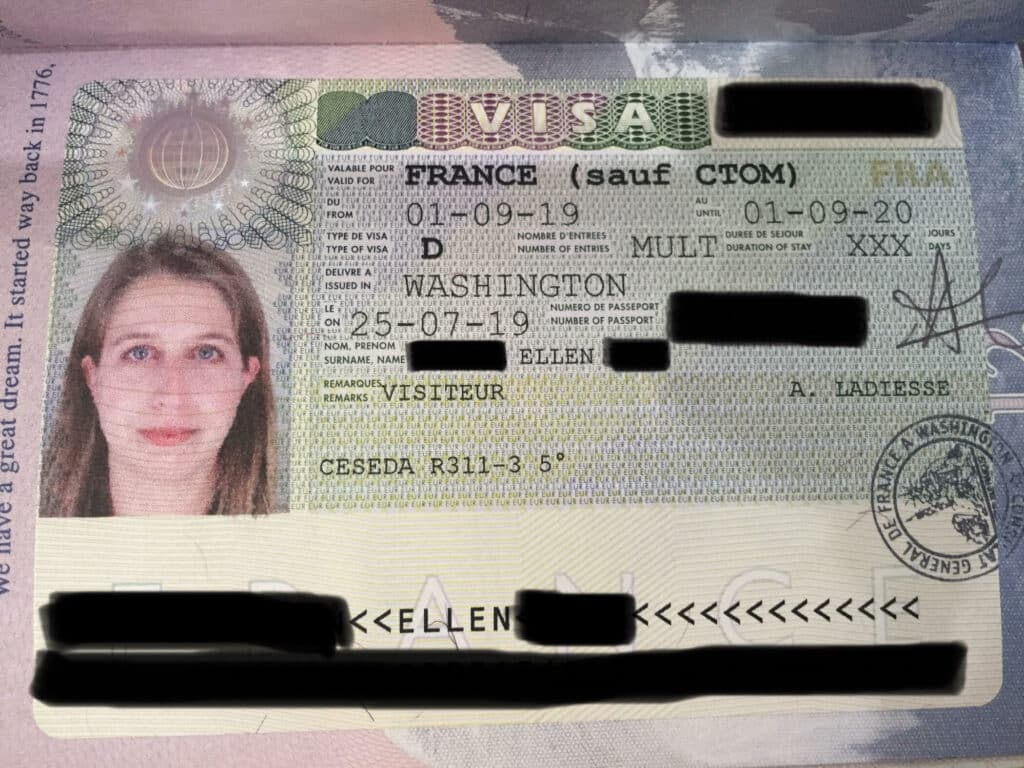Retiring in France as an Expat in 2022
If you are looking to invest as an expat or high-net-worth individual, which is what I specialize in, you can email me (advice@adamfayed.com) or use WhatsApp (+44-7393-450-837).
Table of Contents
Introduction
When retiring in France, think about easy access to sumptuous food and wine, extravagant art and fashion, romantic cities, as well as charming rural sets. You can take long walks along the Seine river, see the Mona Lisa in Louvre, and visit the infamous Eiffel Tower and Notre Dame.
In this article, we will discuss how retiring in France works, the cost of living, as well as some of the best spots to select from, among other things.
Retiring in France: Who is Eligible?
You must fulfill all of the following requirements in order to be eligible for retirement on French soil:
- You are not engaged in any profession in France
- You’re covered by health insurance
- You have the financial means necessary for your support during your stay in the country
- You are not viewed as a threat to the nation or its citizens and have a clean criminal record
Retiring in France: The Hows
No matter your circumstances, the process of obtaining a French resident visa takes at least three years and involves a significant quantity of paperwork.
France is unlike countries such as Greece, Malaysia, and Portugal that offer certain incentive visa for foreign retirees, so you’d have to secure a residence permit first before relocating to and retiring in the country.
Nationals of the European Union (EU), the European Economic Area (EEA) or Switzerland are exempt from getting a residence permit, although they can request one if they want to have complete access to state services and support.
Meanwhile, non-EU citizens have no inherent right for relocating to or retiring in France. You’d have to apply for a long-stay visa before you’re allowed to get a residence permit.
Steps to Residency in France
Long-Stay Visa Equivalent to a Residence Permit (Visa de Long Séjour Valant Titre de Séjour or VLS-TS)
A long-stay visa is the first step on all of the numerous paths to residency. Specifically, you’ll need to secure a Long-Stay Visa Equivalent to a Residence Permit (Visa de Long Séjour Valant Titre de Séjour or VLS-TS) from your home country prior to your arrival in France. This type of visa has a validity period of one year.
It’s crucial to keep in mind that the type of long-stay visa you apply for will also determine the sort of residence permit you can get. For example, if you apply for a visitor long-stay visa that does not allow you to work, you won’t be able to later apply for a residence permit that does. As a result, it is vital to think about which long-stay visa is ideal for you both now and in the coming years.
Authentication of Long-Stay Visa Equivalent to a Residence Permit
You must have your long-stay visa validated within three months of your arrival in France. You can do this by visiting the website of the Directorate-General for foreign nationals in France. To validate your long-stay visa, you must enter the information on your visa and additional personal information, as well as your date of arrival in France and your French address. You also need to pay the state tax.
Furthermore, the French Office for Immigration and Integration (OFII) will get in touch with you to schedule a medical. If you intend to apply for a resident card after the expiration of your long-stay visa, you must submit this report.
A medical certificate stating that you meet the medical requirements for your stay in France will be given to you at the conclusion of the medical examination and any additional tests. This medical certificate is required in order to renew your residence card, which you must do with the prefecture where you now reside.

Temporary Residence Card (Carte de séjour temporaire)
Your first residency permit will almost always only be good for a year (even for spouses and family members of French citizens). You must submit an application for a renewal no later than two months after it expires.
Applying for your first residence permit
Two months after your long-stay visa expires, you can apply for your first residence permit or temporary resident card. You can submit your application online using the same account that you used to validate your long-stay visa. You don’t need to go back to your country of origin because the entire process takes place in France.
A number of documents, many of which you have already presented before for your initial long-stay visa, will need to be submitted again. You will also be required to pay for certain fees for your application. You must also go to an interview at your local prefecture to get your first residence permit. There, you will be required to present related paperwork and have your biometric information taken.
Multi-year Residence Card (Carte de séjour pluriannuelle)
You will submit an application for a multi-year card as your second residence permit. This card has a validity of four years.
The procedure is the same as for your first residence permit, and you can begin it online two months before your current residence permit expires (after one year of being valid). You will need to make an appointment with your local prefecture and will once more be required to present documentation demonstrating that your status has not changed.
You’ll usually get a receipt confirming that you submitted an application for a renewal when your application has been accepted. Having this will protect you in the event that your permit expires while you are awaiting a replacement card.
The renewal process is relatively easier, especially if your situation has not changed and so long as you provide the necessary papers.
Permanent Residence Card (Carte de résident permanent)
A permanent residence card, which you can apply for within three months of your multi-year residence card expiring, is the last stage on your path to becoming a permanent resident in France.
A permanent residency card application requires a minimum of five years of residence in the country; this requirement is lowered to three years for spouses and other family members of French nationals. Although this card acts as a permanent residence permit, it still has to be renewed every after 10 years.
The process for this is the same as for your first residence card – you can start the process online. You will again be asked to provide documents proving that your situation has not changed and will need to attend an appointment at your local prefecture. Depending on the type of Carte de séjour resident, you may also be asked for additional documents to prove your ‘integration into French society’ and also your French language skills.
You can begin the application procedure for this online, just as you would for your first residence card. You will need to make an appointment with your local prefecture and will once more be required to present documentation demonstrating that your status has not changed. You might also be required to provide more documentation to demonstrate your integration into French society and your proficiency in the French language.
Retiring in France: Citizenship Application
Applying for French Nationality, or becoming a French citizen, is another choice if you have lived in France for five years instead of requesting your 10-year residency card.
You are allowed to do such at any point following five years of continuous residence in France.
There are advantages to applying to become a French national even if it is not a requirement for permanent residence. You will also become an EU citizen if you are granted French citizenship, allowing you to move around freely and live anywhere in the EU. Additionally, if you decide to stay abroad for a long time, you won’t lose your French citizenship (which can happen with permanent residency). The right to vote and the ability to obtain a French passport are further benefits of having French citizenship.
Retiring in France: Requirements for Obtaining Residence Permit
When applying for retirement in France, you must provide your valid passport plus three passport-sized photographs. You must demonstrate as a retiree that you can sustain yourself in France for the rest of your life. This entails being able to demonstrate that you have a stable source of income (such as a pension, savings, or investment), health insurance, and housing. From the time you apply for your long-stay visa until the time you apply for your permanent residency card, this proof will be needed at every step of your residency path.
Proof of Sufficient Income
Visitor visas have strict requirements on sufficient income– you must be able to prove that you can support yourself without any help from the French state. Sufficient funds are typically based on France’s minimum wage.
You must be able to demonstrate that you can support yourself without assistance from the French government in order to obtain a visitor visa, which has severe restrictions for a suitable income. Sufficient finances are normally calculated based on the minimum salary in France.
The French government on Aug. 1 rolled out a 2.01% increase in the minimum salary to 1,329.06 euros per month from 1,302.64 euros, according to a Schengen Visa News report. This implies that the minimum wage will jump to 11.06 euros per hour from 10.85 euros.
Acceptable forms of proof might include bank statements, tax returns, or pension receipts.

Proof of Healthcare
You must demonstrate that you have private, global health insurance that covers the entire period of the visa when requesting for a long-stay visitor visa. Your health insurance plan must cover at least 30,000 euros in medical repatriation costs, as well as emergency and hospital care, and it must be valid throughout the whole Schengen region.
You are free to revoke your insurance coverage if you so choose after successfully enrolling in the French medical care system. This is not required while applying for your residence permit or renewing your visa. You could, however, be mandated to go through a medical examination with the French Office for Immigration and Integration.
Proof of Accommodation
Expect to be able to provide confirmation of your living arrangements, such as a copy of a rental agreement covering your initial stay in France if you are wanting to buy, or documentation proving your ownership of a French home.
Retiring in France: Cost of Living
Retiring in France is cheaper than you might imagine. The best of the country can sometimes be found for no cost. There is no fee for picnics in the Luxembourg Gardens, leisurely strolls down the Seine, or days spent getting lost in the Latin Quarter’s cobblestones. Most museums waive entry prices once a month too, such as the Louvre and the Musée d’Orsay.
A meal at an inexpensive restaurant is estimated to cost 15 euros while a mid-range restaurant can charge 60 euros for a three-course meal for two, according to global cost of living data aggregator Numbeo. The location’s exclusivity and neighborhood character have a big impact on the costs.
In terms of real estate, the cost per square meter for buying an apartment within France’s city center is at 6,313 euros, while that outside of the area is at 4,462 euros.
Rentals are also pricey but are competitive with those of the US. Rent for one-bedroom apartments inside and outside France’s city center cost 762 euros ($765) and 604 euros on average per month, respectively. For comparison, monthly average rent prices for one-bedroom apartments inside the US’ city center costs more than twice as much at $1,675.5 while that outside of the area costs $1,254.
The overall monthly cost of living in France for one person can hit 855 euros on average, while it can cost about 3,071 euros for a family of four, both excluding rent.
Retiring in France: Learning the Language
You can always find someone who speaks English in tourist-heavy regions of France, such as Paris, so you don’t have to learn French if you don’t want to. Paris is where you may find English-language news sources, bookstores, religious organizations, and a sizable English-speaking expat population if you’d like to reside in this country but have no interest in acquiring a new language.
You should try to learn at least conversational French if you wish to enjoy French country life to the fullest since outside of Paris and in more rural areas, it is less probable that waiters, store owners, and bank tellers will be able to speak English.
Retiring in France: Public Transportation
Similar to studying French, where you decide to live will affect whether or not you’ll need to invest in buying a car. Walking is the greatest way to explore Paris. You can take a bus, the Metro, a bicycle, or a scooter when your feet start to hurt. For a little fee of a few euros, all of these options are accessible across the city. In Paris, owning a car would be an unnecessary expense.
If you live in the south of France, though, having a car will enable you to fully enjoy all that region has to offer. The great highway system makes it simple to connect to various locations in Europe from France’s domestic road network, which is kept in good condition. Gas prices are greater in France than they are in the US, so using a car to get around might add a lot to your budget.
It is simple to travel inside France and across Europe because to the country’s well-established rail infrastructure. The domestic rail system, known as SNCF, is simple to use, reasonably priced, and quick. Senior citizens even receive a 25% discount on ticket prices.
Retiring in France: Employment
Are you allowed to work in France as a retired expat?
Unfortunately, foreign retirees are not allowed to engage in any beneficiary activities in France. A France work visa can be applied for by anyone who wants to work there.
Retiring in France: Health Insurance
Protection Universelle Maladie (PUMA), the government’s national health insurance program, provides funding for France’s medical care system, which is regarded as one of the best in the world. All citizens of the nation, including those who work and dwell in France as foreigners, have free access to medical care and treatments.
All citizens of France, including expats, are now required to get health insurance. Seventy percent of the cost of medical care is covered by public health insurance, although other services come with a fee. But even though healthcare isn’t totally free in France, the expenditures are often low.
Foreign retirees who want to stay in France for an extended period of time can obtain health insurance by enrolling in the nation’s national health insurance program. You will need to secure private health insurance to cover you during this treatment, which could take months.
Retiring in France: The Pros
Here are some additional reasons why retiring in France is advantageous for you:
- Tax system. Many European and non-European nations have tax treaties with France. By virtue of these deals, you won’t be subject to double taxation as a foreigner traveling to France for retirement (taxes in France and your home country). On the other hand, you must start paying tax on your worldwide income as soon as you become a French tax resident.
- Economy. The economy of France is the seventh largest in the world. The living standards of France’s inhabitants and authorized foreign residents have improved because to the country’s highly developed and market-oriented economy.
- Safety and security. To ensure that everyone, including expats, is safe, the French government has put in place security arrangements.
- Nature. France is well-known for its natural beauties in addition to its well-known man-made attractions. The nation is home to outstanding animals and flora as well as some of the most stunning scenery.
- Cuisine. Many people believe that French cuisine is the most prominent and well-respected in the entire world. French cuisine is particularly tasty because of the distinctive cooking methods used by the French people.
Retiring in France: Best Spots
France has a remarkable variety of landscapes, from chic urban hubs to charming rural villages, from glistening coastal towns to Alpine mountain ranges.

Occitanie
Occitanie is a great place to settle down and enjoy the finest of French country living. More than 300 sunny days a year are enjoyed in this region, which also offers ancient and charming towns and cities, a wide range of outdoor activities, and beautiful scenery.
Morbihan
You may experience daily life in Morbihan, a very rural region on the southern Brittany coast that receives few visitors from outside of France. The Gulf of Morbihan serves as the focal point of life here, and the coastline is interesting to explore. The expat population in Morbihan is modest, but if you speak French well, it’s a great place to start if you want to live a cultured and affluent coastal lifestyle.
Annecy
The southern part of France has many great places that offer the right living conditions for a perfect retirement.
It would be fantastic to base yourself in the mountain town of Annecy, also referred to as the Pearl of the French Alps. The town’s rich history makes it seem like Disneyland come to life. The clear blue lake in the city’s center serves as the center of activity during the summer. In the winter, all around are the snow-capped Alpine peaks. Nature lovers, museum enthusiasts, foodies, adrenaline junkies, and fashionistas are all drawn to Annecy at the same time.
The Vieille Ville neighborhood, lake, lovely old town, and main canal that runs through the town are also well-known features. The lake has routes for cyclists, joggers, and walkers, and is perfect for water sports like sailing.
When it comes to the lifestyle choices available to both locals and foreigners, Annecy is definitely a precious treasure.
The overall monthly cost of living in Annecy for one person can hit 1,013 euros on average, while it can cost about 3,705 euros for a family of four, both excluding rent.
Toulouse
Toulouse is the ideal location to do so if you want to experience the distinctiveness of southern France. A Mediterranean climate with warm summers and moderate winters characterizes the city, despite its distance from any beaches.
The overall monthly cost of living in Toulouse for one person can hit 857 euros on average, while it can cost about 3,068 euros for a family of four, both excluding rent.
Paris
If your idea of the “ideal retirement” is to be surrounded by romance, elegance, culture, and all that is gorgeous and polished, then retiring in Paris, known as the City of Light, should be a cinch for you. Here, there is almost never a dull moment because there is always something exciting to see, whether it is a brand-new museum exhibit, a restaurant or retail establishment launching, or a hidden area worth discovering.
Paris is also ideal for single retirees who wish to embark on new experiences, and who knows? Maybe you’ll find your new soul mate while exploring the city’s picturesque streets.
The overall monthly cost of living in Paris for one person can hit 952 euros on average, while it can cost about 3,414 euros for a family of four, both excluding rent.
Lyon
Lyon is located at the confluence of the Rhône and Saône rivers, which provides the city a lovely and serene atmosphere. The Basilica of Notre-Dame de Fourviere, the Gallo-Roman Museum, and the Roman Theaters, are some of the historical and architectural highlights of the city. It has been rated as France’s most attractive city, surpassing places like Bordeaux or Paris.
The most delectable French cuisine and opulent shopping are both available in Lyon.
The overall monthly cost of living in Lyon for one person can hit 899 euros on average, while it can cost about 3,235 euros for a family of four, both excluding rent.
Juan-les-Pins
Juan-les-Pins is a popular vacation spot because of its sandy beaches and a seaside promenade lined with restaurants and shops. The town is a desirable location for retiring in France because of its vibrant surroundings, beaches, and way of life. If you prefer a more relaxed lifestyle, this stylish resort will be a fantastic alternative.
Pained by financial indecision? Want to invest with Adam?

Adam is an internationally recognised author on financial matters, with over 760.2 million answer views on Quora.com, a widely sold book on Amazon, and a contributor on Forbes.



